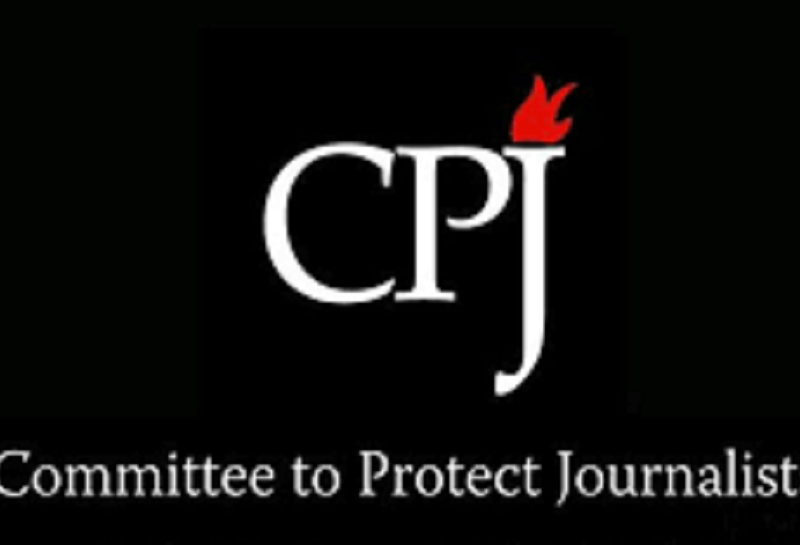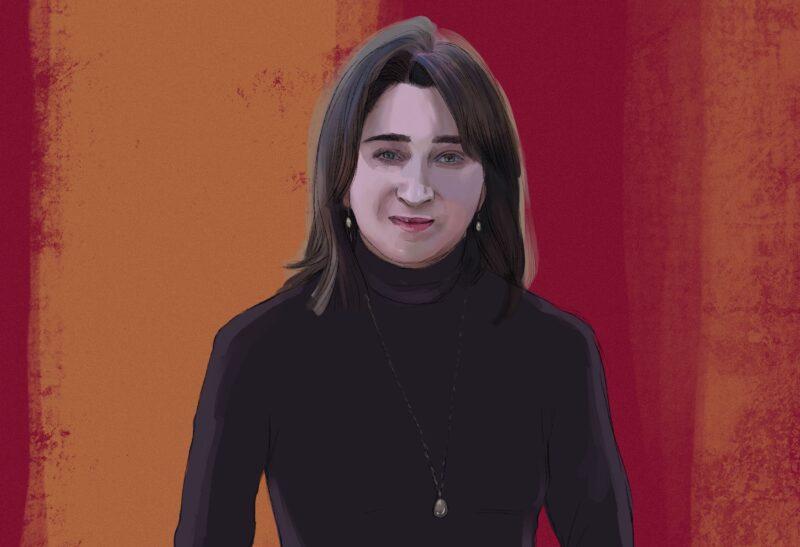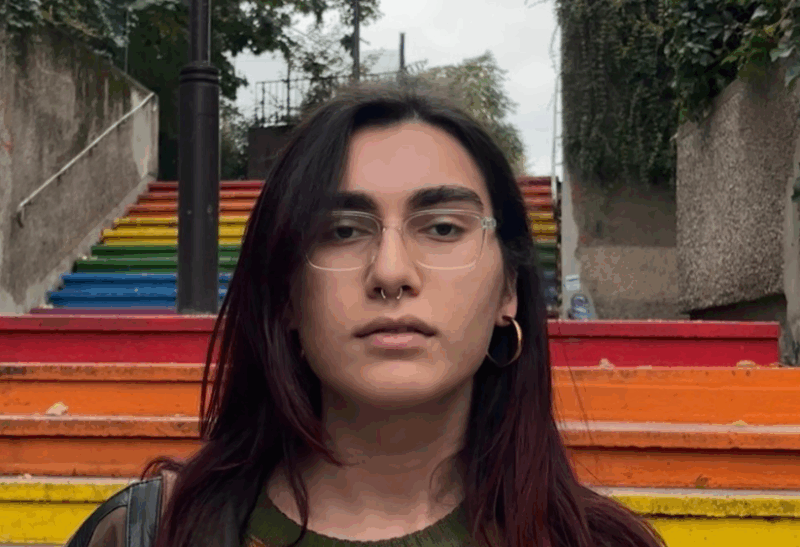After the crackdown on journalists and NGO representatives in Azerbaijan, independent researchers are now being arrested on more serious charges. This time, it is treason. This charge has been leveled against researcher Igbal Abilov and political scientist Bahruz Samedov, neither of whom reside in Azerbaijan. Local civil society, along with many international organizations, has viewed this as yet another instance of pressure on freedom of expression in Azerbaijan.
Who is Igbal Abilov?
Igbal Abilov was born on December 12, 1989, in the village of Bala Kolatan in the Masalli District of the Azerbaijan SSR. At age 8, he moved to Belarus with his parents.

Abilov is one of the founders of the Talysh National Academy (TNA), registered in Riga in 2010 by a group of Talysh researchers. The academy’s goal is to study the Talysh language from socio-economic, historical, ethnographic, archaeological, literary, and linguistic perspectives. The academy’s website includes samples of Talysh folklore, unpublished historical documents, and works by early researchers. Igbal Abilov also leads the TNA’s publication, The Bulletin of the Talysh National Academy.
On June 22, 2024, Abilov was summoned to the Masalli District Department of the State Security Service (SSS) and interrogated for six hours. He was then released, but on June 27, as he prepared to fly from Baku Airport to Moscow, he was stopped, and his passport and phone were confiscated, preventing his departure. He had to return to Masalli. On July 22, he was called to the local SSS branch, supposedly to retrieve his passport and phone. Instead, he was taken to Baku without notifying his family.
Igbal Abilov faces charges under articles 274 (treason), 281.3 (public calls for anti-state activities directed by foreign organizations or their representatives), and 283.1 (incitement of national, racial, social, or religious hatred and enmity) of the Criminal Code of Azerbaijan. He is accused of collaborating with Armenian intelligence services and allegedly attempting to incite ethnic hatred in Azerbaijan in coordination with them.
Abilov’s lawyer, Fariz Namazli, states that since the investigation is ongoing, details are being kept confidential:
“We are therefore unaware of the evidence or information the investigation is collecting. According to Azerbaijani criminal procedure law, the defense, lawyers, and the accused are not permitted to review the case materials until the preliminary investigation is completed.”
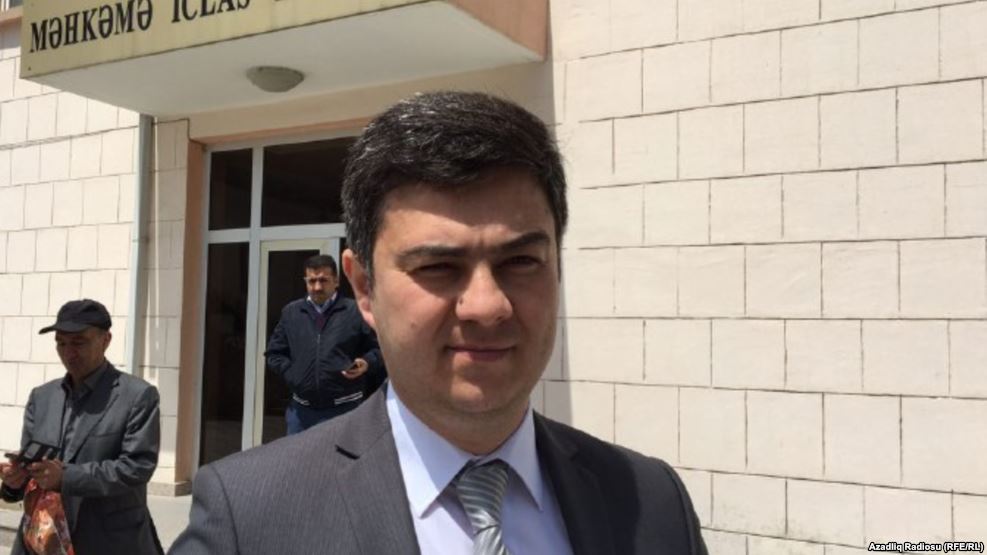
ОHowever, when Igbal Abilov was arrested, some pro-government media outlets published a brief summary of the charges against him, likely provided intentionally by the investigative body itself.
These outlets claimed that Igbal Abilov allegedly made a deal with Armenian intelligence agents and similar allegations. They mention the name of a professor at Yerevan State University, presenting him as an intelligence officer. Yet, this individual is a scholar and university professor, just as Igbal is a scholar and historian conducting ethnographic research. Simply having correspondence with this person does not mean that Igbal Abilov committed treason.
Again, the investigation has not provided us with any case materials, so we cannot comment on the evidence they may have.”
“In our region, we are bilingual from birth. At home, it’s Talysh, at school, it’s Azerbaijani.”
Igbal Abilov’s father, Shahin Abilov, disagrees with the charges against his son and believes he is innocent.
“In our region, we are bilingual from birth. At home, it’s Talysh, at school and on television, it’s Azerbaijani, and that’s how we grow up bilingual. Igbal also spoke both languages from childhood. As he grew older and received an education, he learned more languages. Now he knows seven languages.
Igbal was not involved in politics and did not belong to any political organizations. His work was not only focused on the language or issues related to the ethnic group he belongs to. Being Talysh, he also researched the Middle East, China, and Turkey.”

These were not political, but ethnographic studies. Naturally, as a Talysh, he also researched Talysh’s national identity. He wrote about the way of life, customs, and traditions in this region in the 18th, 19th, and early 20th centuries. Some of his works were published in the press. He loves researching traditions. His most recent published book was a Turkish translation of the work Turkish Folk Songs by Russian scholar Boris Miller, published by the Atatürk Cultural Center in Ankara.
Families living abroad often face certain difficulties and challenges in raising children, because it is unclear whether the children will know our traditions. This thought is frightening, and we have always wanted our children to learn our traditions—that is, Azerbaijani traditions in general, not just Talysh ones. We did not want to raise our children in a foreign nation. We always considered this.
“Let him marry and not get involved in anything else”
“Everyone was shocked by Igbal’s arrest. Several things happened in a short period of time. First, they came for him and took him for questioning at the Masalli Department of the State Security Service. They interrogated him for 6 hours and talked to him. We were very worried. He doesn’t deal with politics, so what was the matter? When he finally came out, a State Security officer said to us, ‘Since he’s a scholar, let him focus on his science, let him marry and not get involved in anything else.’ Igbal was supposed to leave in 3-4 days. He also told them this. That’s how we parted. But before his departure, he was stopped at the airport. We waited to see what would happen next. And then what happened, happened. Our whole family was in shock from the very first day. Because they know Igbal. Igbal is loved by everyone. His foreign friends were also in shock. Igbal never dealt with such things. No one turned away from us, nothing like that. May God bless our people. Although, of course, what can they do to help… At the moment, the investigation has made this decision. The work is being done within the framework of the law. People firmly believe that Igbal is innocent, they keep telling us that. Grandmothers pray for him, everyone prays for his swift release.
Everyone—family, close ones, friends, anyone who knows Igbal—is sure of his innocence and is waiting for him. They hope he will be freed soon. They believe that these charges have nothing to do with Igbal.”
“Treason is an article that implies providing any secret information to a hostile state.”
Activists from different countries have formed an international initiative group to protect the rights of Igbal Abilov.

The statement from the initiative group says that serious violations of Igbal Abilov’s rights occurred during his arrest, and the charges of committing extremely serious crimes are fabricated.
Igbal Abilov does not plead guilty to any of the crimes he is accused of.
“Treason is an article that implies providing secret information to a hostile state. That is information that constitutes a state secret. But Igbal Abilov does not possess any such information, no state secrets to pass on to anyone. He is simply a scholar engaged in scientific activity,” says lawyer Fariz Namazli.
Currently, a detention order for four months has been imposed on him. We filed an appeal against this decision, but it was rejected. Later, we filed a motion to transfer Igbal to house arrest, but that was also denied. We appealed that decision as well. Additionally, at the time of his arrest, the investigative body imposed a ban on Igbal’s phone calls and meetings with his family and others. We also unsuccessfully attempted to challenge this decision. However, this restriction has now been lifted. At this stage, we have taken all the preliminary steps we could, and in the future, we will determine what further actions to take for his defense.
Who is Bahruz Samedov?
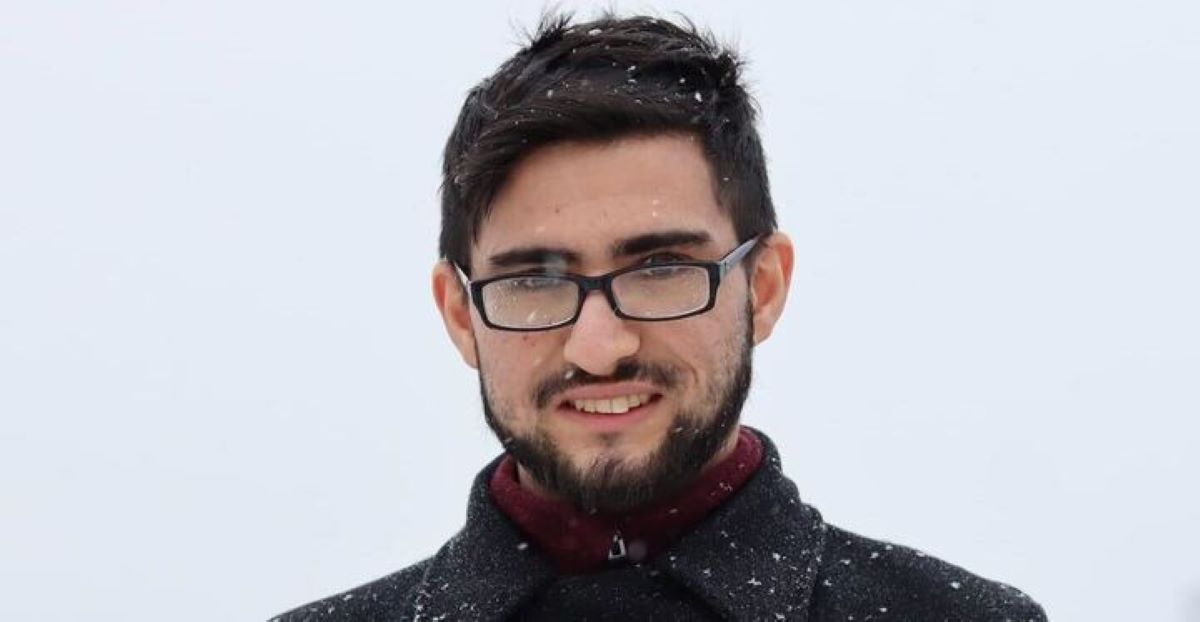
Bahruz Samedov was born on April 29, 1995, in Baku. A young political scientist and a doctoral candidate at Charles University in Prague, he is known for his critical writings about the Azerbaijani government and his peacekeeping stance on the Nagorno-Karabakh conflict. On August 21, 2024, he was detained by State Security Service (SSS) officers. On August 23, the Sabail District Court imposed a 4-month detention order for him. Samedov faces charges under Article 274 (treason) of the Criminal Code. He is accused of collaborating with Armenian intelligence services.
According to human rights defender and lawyer Khalid Bagirov, if a person is a citizen of the Republic of Azerbaijan and has not renounced their citizenship, it imposes certain moral and legal obligations.
“There are several controversial aspects in this case.
Any cooperation with Armenians in itself does not necessarily constitute treason. We know that those recently arrested under this article, whether it’s Igbal Abilov or Bahruz Samedov, are accused of allegedly sharing certain information with Armenians. Let’s say I’m talking to an Armenian, and they ask me how things are in Azerbaijan, and how the elections went. And I answered that I didn’t like it, the elections were poorly conducted, there were falsifications. Does that automatically mean treason? Selling state secrets? No.”
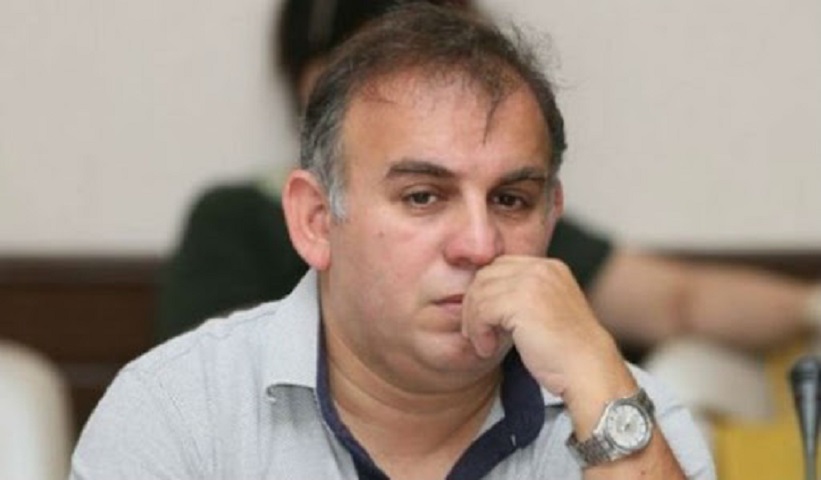
Article 274 of the Criminal Code of Azerbaijan, the article on “treason,” outlines four types of offenses. One of them is providing Armenians or other individuals with information that constitutes a state secret. This is where the contradictory situation arises. The authorities have not yet disclosed what exactly, according to their version, this information was that these people allegedly shared. Is this a criminal offense? For instance, any journalist can cooperate with foreign media, obtain information from Azerbaijan, and pass it on to foreign outlets. Does that mean they are committing treason? Of course not.
But the main contradiction lies elsewhere. Once again, these individuals are accused of passing information to Armenians. But the question arises: what state secrets did they possess, and where did they get them? Could Igbal Abilov and Bahruz Samedov really have access to information that constitutes a state secret? I know that the lawyers are persistently demanding to know what these so-called secrets are. What information did they pass on? And the response we get is that they cannot tell us, because even that information is a state secret…
And here’s another absurd situation. First of all, how could these people have state secrets to pass on to anyone? They are not the kind of individuals who have access to such information. And secondly, if they allegedly passed this secret to the Armenians, it means the Armenians already know it. So why shouldn’t Azerbaijani society know what even the Armenians know? What kind of information is this? Think about it: if it was shared with Armenians, then it’s no longer a secret. And why shouldn’t Azerbaijani society know what the Armenians know? These are the absurd charges being made. It’s simply ridiculous.
“Being against war is not treason.”
Bahruz Samedov’s lawyer, Zibeyda Sadigova, states that, according to the investigation, Bahruz contacted Armenians, received assignments from them, and carried them out, which is why such a serious charge was brought against him.
“In court, I requested that we be provided with the available evidence, and after reviewing it, we might even conclude that the accusation is justified and fair… But the court denied us. As you know, the defense does not have access to the evidence during the investigation.”

In court, Bahruz also stated that, of course, he communicated with Armenians, but strictly in a friendly manner. Or, as he put it, “about the weather and nature.” Moreover, Bahruz has not been living in Azerbaijan for a long time; he only visits Baku occasionally to visit his 80-year-old grandmother. He is a researcher and works at Charles University in the Czech Republic. Bahruz said that, no matter how much he communicates with Armenians, he still has no information about Azerbaijan to share with them. He does not possess any secret information that could lead to such suspicions about him. Since August 21, Bahruz has repeatedly stated that, since he does not have such information, he cannot be the target of the accusations against him.
“Being against war is not treason. It is simply one position. It is the freedom of expression, which is our constitutional right and is also covered in Article 10 of the International Covenant on Human Rights, ratified by Azerbaijan. Everyone in Azerbaijan doesn’t need to support war or want war. Some people may be proponents of peace. That is normal. Not everyone must adhere to the same opinion.”
“The trend of political persecution has been worsening since 2013.”
Khalid Bagirov says that the trend of political persecution and repression has been worsening since 2013:
“And it’s not just criminal persecution, but also administrative persecution. Previously, administrative arrests lasted 15 days, but now the period has been extended to 2 months. Similarly, while political prisoners used to be sentenced to a maximum of 3 years in prison, now they can face sentences of 15 to 20 years, and for treason – even life sentences.”
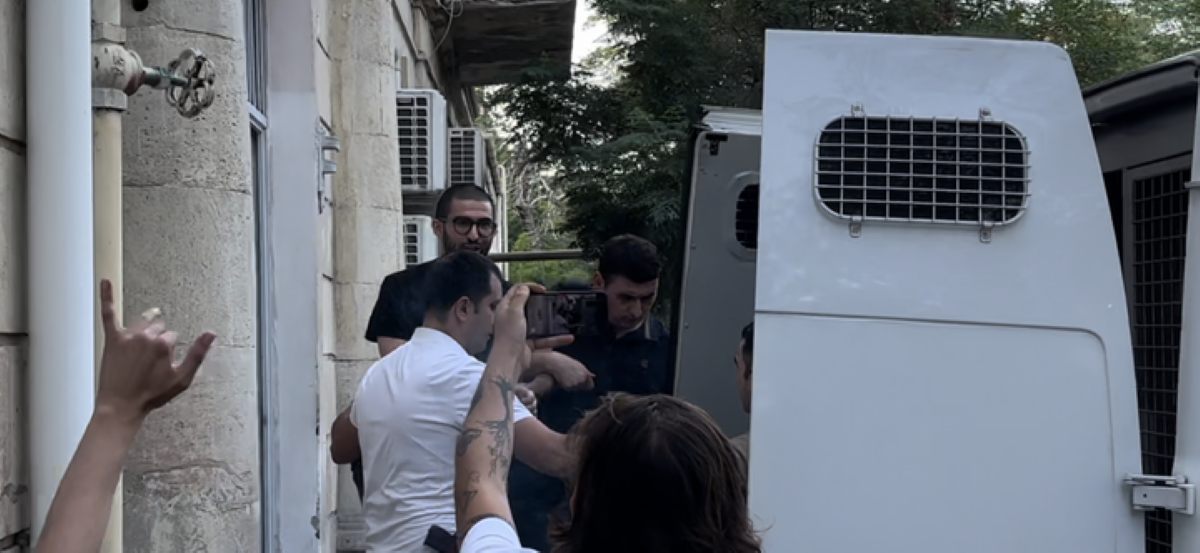
They are accused of such crimes. This trend has existed for a long time. Specifically, do you know who the “nowar”-ists are? They are anti-militarists who oppose war, advocate for friendship with Armenians, and for peace. Naturally, what would you choose if you wanted to fabricate an accusation against these people? Right, treason… That is, working for the enemy. There’s no other logic here. Or, for example, Igbal Abilov – a Talysh activist. What can you accuse a Talysh activist of? There are two articles “to choose from”: incitement of ethnic hatred or the same treason. Because, if you belong to an ethnic minority, there is a high likelihood that you will betray the state, and if you’re an anti-militarist, you’re likely a potential traitor. There is no talk of the composition of the crime here. What are repressions? Repressions are arrests based on fabricated charges. And when fabricating them, they try to somehow “fit” them to the accused.
For example, accusing Bahruz Samedov of money laundering would be absurd. That would be more suitable for economist professor Gubad Ibadoglu. This is how it works. The authorities responsible for the repressions choose an accusation that “fits” the person in question. Moreover, the type of body that conducts the prosecution matters: if it’s the State Security Service, then, of course, they cannot arrest you for drugs. Their area is treason, and under this article, they can arrest you.
“These repressions are also the result of the hypocrisy of the West.”
Gender activist and anti-militarist Gulnara Mehtiyeva has been friends with Bakhruz Samedov for many years. She is currently temporarily living in Tbilisi. She shares that Bakhruz always feared persecution but never considered any other activity besides academia. She says that after the pressure on journalists and NGO representatives, the turn has now come for anti-militarists.

“In my opinion, the hypocrisy of the West is also to blame for these repressions. After Ilham Aliyev struck several deals with the West, it seemed like his hands were untied. For example, there used to be more international reaction, and he had to take it into account. Now, however, this is no longer necessary. As a result of his foreign policy and having made enough deals with everyone, he knows that he won’t face consequences for any of his actions. So now he is calm.
For instance, with so many arrests in the country, COP29 will take place, and Western representatives and people from all over the world will calmly come and participate. Don’t they know that there are no journalists, no activists, and no civil society left in Azerbaijan? Of course, they know. But they prefer to turn a blind eye, on certain terms. They are relaxed, and Ilham Aliyev is confident in this. This is one of the reasons why there have been more arrests. He has decided to eliminate everyone he doesn’t like at the first opportunity. In the future, he might even turn them into objects of another deal.
It is worth noting that as early as August, international NGOs and Azerbaijani human rights organizations urged the UN to pay attention to the persecution of journalists and activists in Azerbaijan ahead of COP29. They sent an open letter to the UN Framework Convention on Climate Change (UNFCCC) Secretariat, calling for climate summits not to be held in authoritarian countries.
“Right now, not only antimilitarists are concerned, but a significant portion of the civil society that remains free. They have no confidence in tomorrow or even today,” says Gulnara Mehtiyeva. “No one knows when they will be targeted. Government media even list as potential targets initiatives that have never before faced any pressure. They are surprised that now it’s their turn. Of course, all this limits their activity. It also limits the activities of antimilitarists. They were never particularly active to begin with. At most, there were some publications or a disgruntled status on Facebook. I don’t know if this can even be considered activism. But now they had to stop even that. Especially our friends living in Azerbaijan. Because an accusation of treason could land them in prison for 20 years, which, of course, is a very long time in human terms.
Moreover, this will be very hard for the family, friends, and children of the person. It’s terrible to be the relative or parent of someone arrested for treason. Because ordinary people still don’t fully understand what’s happening, they think that if someone is arrested, it’s probably because they did something wrong. It’s a very serious accusation. More serious than charges of drug trafficking or smuggling. Therefore, it becomes a deterrent factor.
And those who are outside the country are mostly focused on supporting political prisoners: they are engaged in their public and international defense, raising money to send them packages, etc. Therefore, there is virtually no room for activism now. Of course, we must speak up when possible, but we can’t expect anyone to take such a risk.”
With the support of Mediaset.

